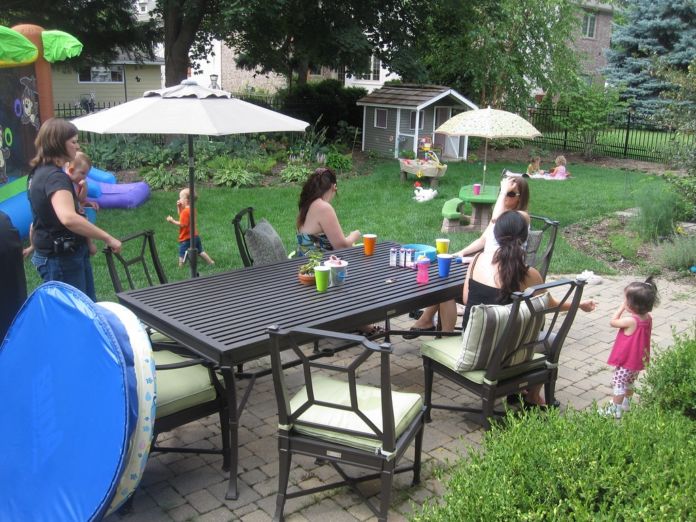“Playing” plays a critical role in children’s development. It is not only a fun activity but also a great tool for your child to learn and develop physical, cognitive, social, and emotional skills. Especially child-centred free play can practice autonomy, imagination, creativity, and problem-solving skills. Toddlers (age 1-3), take part in parallel play where they play with other kids, show interest in each other however essentially do their own thing without much interaction. Children, age of 3+, tend to start engaging more in collaborative play which involves interacting with other children and actively playing together. This is particularly the time they express a need for a friend to play with and might even make their own arrangements for playdates. This guide is about how you can facilitate playdates which are essential for your child’s development and adjustment to the Dutch culture.
Benefits of Play and Playdates
- Play stimulates all areas of child development:
- Physical skills (Balance, coordination, motor skills, etc.)
- Social skills (Prosocial behaviours, controlling aggression, negotiation, collaboration, initiative-taking, autonomy, assertiveness, etc.)
- Emotional skills (Emotion regulation, coping with frustrations, empathy, self-control, etc.),
- Cognitive Skills (Attention, reasoning, memory, problem-solving skills, etc.)
- Language skills (Language development, communication skills, etc.)
- Creativity (Coming up with new ideas, think outside the box, etc.)
- Playdates provide great opportunities for your children to get to know Dutch culture, build new friendships and improve the Dutch language.
- Playdates also give parents a chance to extend their social network, build friendships and learn new things from other parents.
- For expats, playdates can also help with creating a social support network which here may not be as large as it was back in your home country or where you were living before. In case of unexpected/unplanned situations, it is difficult to arrange for a last minute babysitter. Playdate setup can come handy in these situations. That way, you know your child is having fun playing with a friend and you get to finish up the urgent task. When the other parent is in need of such a free time, you help them out in return.
Facilitating Playdates in the Netherlands
A most common way to facilitate collaborative play is by setting up playdates for your child. Since children start formal schooling during this age, most of your child’s friends would be from school. Additionally, friend circle often may extend to kids from neighbourhood and also after-school care. So, how do you arrange playdates here as an expat parent in the Netherlands?
Here are some pointers for setting up and managing play dates in the Netherlands:
Setting up an appointment
- Encourage your child to invite friends over for playdates. The easiest way is to ask your child who does (s)he likes to play with. It is very common here to arrange playdates after school. Simply reach the parent and ask if they would like to have a playdate.
- Agree on the date and decide what time and how the kids will be picked up and brought back home. Most importantly, be on time for drop-off and pick-up. Dutch people are particularly punctual and care about organization and timelines.
- Limit the number of kids you invite. A common practice is inviting 1 or 2 children, particularly in the beginning so that the children can get to know each other.
- Always exchange phone numbers and addresses for emergency reasons.
- Enquire ahead about any allergies or other specific needs of the playdate.
- If your child is a picky eater, it might be a good idea to send them some snacks. Else let the host family decide how the playdate should be.
During the playdate
- Let the children play by themselves and decide what and how they want to play. Give them space to use their imagination to come up with games. This develops their social and cognitive skills to solve the problems they experience. You do not need to be present in their games, just observe from distance and intervene when needed (in case of aggressive behaviours etc.).
- Have some activities ready to go in case children cannot click immediately or are bored.
- Let children know about your rules if you have any. For example ”You are free to play however you like in the living room but please do not go upstairs.”
Other socio-cultural aspects
- It is not necessary nor common to invite parents to playdates (especially when children know each other). From about 4 years of age, children can go to their friends’ house for playdate alone under the supervision of the hosting parent.
- For the very first playdate, invite both parent and the child or accompany your child to the playdate hosting family. This helps to overcome the mental hurdle of sending children to people you have recently met.
- As a host, do not try to discipline the guest child. If the guest child is being aggressive, some general rules need to be reminded to the childlike ‘In our house, we do not hit each other’. Otherwise, you should avoid disciplining the guest child.
- If something bothers you during a playdate, have an open conversation with the other parent. Especially Dutch culture is very direct, people here say what they feel and think. However, indeed do it with good intentions and empathy. Do not start your conversation with the goal to ‘correct’ the other parent.
- Some kids may need a longer time to adjust to the idea of being at a friend’s house without their parent. In that case, agree with the host parent so you can join the playdates until your child feels comfortable enough to stay by himself/herself.
After the playdate
- If kids didn’t enjoy the date or somehow couldn’t click, have a discussion with your child about why this particular playdate did not work out (maybe the kids were tired or have a bad day and that it is ok). Meet at least 2-3 times before deciding on future plans.
- Make it fair and take turns. If someone invites your child to their home, next time it is your turn to invite them.
Expat parents should feel free to use playdates as an opportunity to meet with other parents and expand their network. So, invite playdate’s parents over as long as you wish. It is also possible to have a group of parents who regularly meet while their children play together. If the guest parent cannot make it, they will decline your invitation. Do not take it personally either. In the Netherlands, it is very common for parents not to join the playdates with their children (also birthday parties).
 *Elif Durgel is a psychologist who specializes in parenting and child development in multicultural contexts. She is running Roots and Wings Academy where she provides consultation and guidance to expat parents. If there is any topic or question you would like to see covered in the coming articles, please get in touch with Elif.
*Elif Durgel is a psychologist who specializes in parenting and child development in multicultural contexts. She is running Roots and Wings Academy where she provides consultation and guidance to expat parents. If there is any topic or question you would like to see covered in the coming articles, please get in touch with Elif.
















